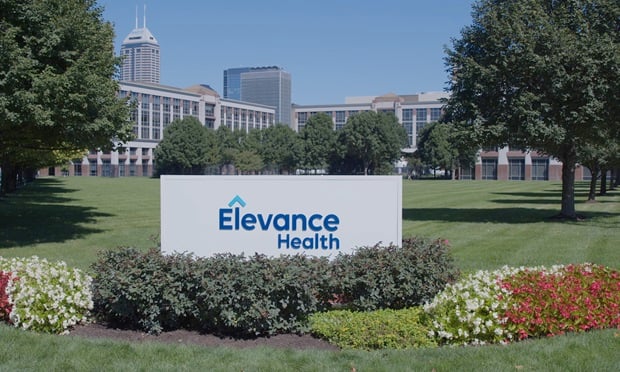A majority of voters support three key provisions of a Senate bill intended to fix part of the Affordable Care Act, according to a survey conducted by the Program for Public Consultation at the University of Maryland, fielded by Nielsen Scarborough and released by the Voice of the People.
After listening to arguments for and against each proposal in the bill co-authored by Senator Lamar Alexander (R-Tenn.) and Patty Murray (D-Wash.), 2,511 registered voters were asked how swayed their were, and whether they supported or opposed the provision.
One provision would allow Americans age 30 and up to have “copper plans,” which have lower premiums, but require patients to pay nearly all of the medical costs until they meet the high deductible of $7,150 (younger Americans can already have such plans).
A majority (85 percent) of Republican respondents, 68.9 percent of Democrat respondents and 77.3 percent of Independents find the pro argument for copper plans convincing: “The government should not be telling people what kind of insurance plan to have. If people want to have a copper plan with a high deductible they should be able to do so. They may feel that they’re healthy enough and they can financially handle the first $7,150 of an illness or and an accident. In the event of a very costly illness or accident they would still be covered. We should let people make that decision for themselves. Furthermore, it might encourage people to get cove rage who do not have it now, because they feel they cannot afford the premiums of a bronze plan.”
On the other hand, 49.5 percent of Republicans, 63.7 percent of Democrats and 54.3 percent of Independents find the argument against copper plans convincing: “Copper plans are a bad idea. They’ll always look like a better deal on the surface than they really are. The very people attracted to those plans are ones with low incomes who cannot afford the $7,150 deductible, especially when they get sick and are less able to work. Also, research shows that people on plans with very high deductibles tend to avoid visiting the doctor. They wait until illness or accident forces them to. Often they end up going to the emergency room, which is inefficient; since many cannot afford to pay, the hospital often eats the cost. The ACA exchanges should not be offering these plans, which are bad for lowincome people and for society.”
After listening to both arguments, 68.2 percent of Republicans, 53.9 percent of Democrats and 57.2 percent of Independents say they support the bill’s copper plan provision.
Another provision would restore the cost-sharing reduction payments to insurers – though those terms were not provided to the survey respondents. Instead, they were told that the provision pertains to subsidies that have been paid directly to the insurance companies to reimburse them for covering the outofpocket costs of lowincome people over and above their maximum.
Less than half (45.5 percent) of Republicans, 87.4 percent of Democrats and 61 percent of Independents find the pro argument for this provision convincing: “By ending the subsidies for out of pocket costs for lowincome people the government has only created disruption and uncertainty. Middleincome people are paying higher premiums. And the government will pay more in premium subsidies for lowincome people. The CBO says the government is not saving any money and even losing money in the short run. We need to restabilize the individual healthcare market by restoring the subsidies that have been highly effective in bringing healthcare coverage to millions of people.”
On the other hand, 82.8 percent of Republicans, 30 percent of Democrats and 56.3 percent of Independents find the argument against this provision convincing: “These subsidies are a giveaway to the insurance companies that has to stop. This bill is simply an effort to shore up a system that is not working. The advocates of the ACA told us that premiums would stop going up and up, but that has clearly not happened. Going back to paying subsidies so that some lowincome people make little or no copayments removes their incentives to keep their medical costs low and makes them dependent on the government.”
Afterward, 29 percent of Republicans, 84.4 percent of Democrats and 55.3 percent of Independents say they support that provision.
The respondents were also asked about the bill’s provision to restore funding for services that help familiarize people with the ACA's insurance exchanges, including advertising, education, training “navigators” to help people find their way to a health plan, and notifying people if there is a problem with their coverage. The Trump administration reduced funding for outreach by over 70 percent.
A third (35.5 percent) of Republicans, 83.2 percent of Democrats and 64.2 percent of Independents find the pro argument to restore outreach funding convincing: “It is the responsibility of government to do its best to maximize the number of citizens with health insurance. When people do not have health insurance is creates many costs for society as well as the person
without insurance. We know from experience that if we cut back on outreach efforts fewer people will sign up. For example, someone who lost the insurance they previously got from an employer may not know that they need to sign up for insurance during a specific period in the year and that if they miss it will have to go without insurance until the next year. Cutting back spending on outreach efforts is pennywise and poundfoolish.”
On the other hand, 85.2 percent of Republicans, 20.9 percent of Democrats and 46.1 percent of Independents find the argument against restoring outreach funding convincing: “In its work to get a grip on the overspending going on everywhere in government, the administration is scrutinizing all budgets, including spending to promote Affordable Care Act. This reduction is reasonable: it lowers this spending to a level similar to what the government spends on publicizing Medicare’s drug benefit. Government should not be expected to always take people by the hand and tell them what they need to do. Furthermore, it is clear that the ACA is a failing program and it makes no sense to prop it up with taxpayerfinanced advertising.”
Afterward, 29.3 percent of Republicans, 85.1 percent of Democrats and 55.4 percent of Independents say they support restoring outreach funding.
Complete your profile to continue reading and get FREE access to BenefitsPRO, part of your ALM digital membership.
Your access to unlimited BenefitsPRO content isn’t changing.
Once you are an ALM digital member, you’ll receive:
- Breaking benefits news and analysis, on-site and via our newsletters and custom alerts
- Educational webcasts, white papers, and ebooks from industry thought leaders
- Critical converage of the property casualty insurance and financial advisory markets on our other ALM sites, PropertyCasualty360 and ThinkAdvisor
Already have an account? Sign In Now
© 2024 ALM Global, LLC, All Rights Reserved. Request academic re-use from www.copyright.com. All other uses, submit a request to [email protected]. For more information visit Asset & Logo Licensing.








